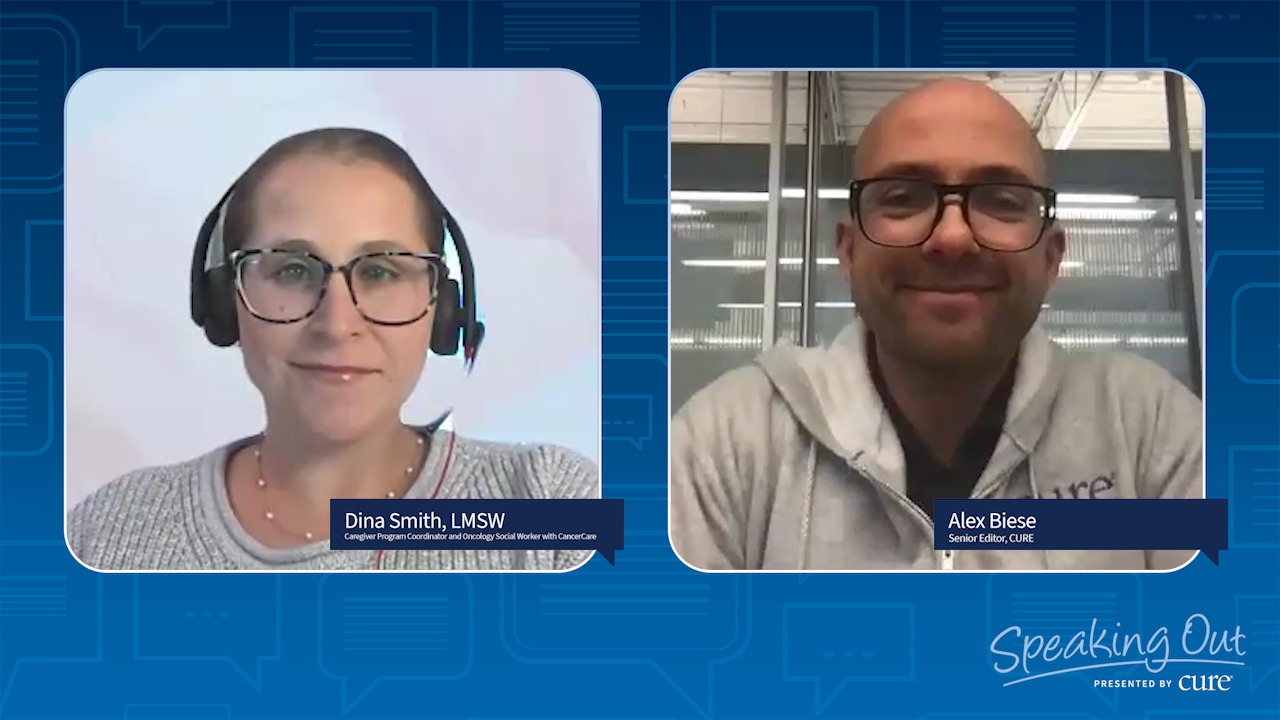- About Us
- Advertise / Support
- Editorial Board
- Contact Us
- CancerNetwork.com
- TargetedOnc.com
- OncLive.com
- OncNursingNews.com
- Terms & Conditions
- Privacy
- Do Not Sell My Information
- Washington My Health My Data
© 2025 MJH Life Sciences™ and CURE - Oncology & Cancer News for Patients & Caregivers. All rights reserved.
How Communication Gaps Can Affect Caregivers and Patients

A nationally-published, award-winning journalist, Alex Biese joined the CURE team as an assistant managing editor in April 2023. Prior to that, Alex's work was published in outlets including the Chicago Sun-Times, MTV.com, USA TODAY and the Press of Atlantic City. Alex is a member of NLGJA: The Association of LGBTQ+ Journalists, and also performs at the Jersey Shore with the acoustic jam band Somewhat Relative.
An expert explained that improved communication will make caregivers of loved ones with cancer feel less isolated.
For the caregivers of loved ones, a cancer journey can have a significant and profound psychosocial impact, as one expert explained to CURE.
“There are two major challenges that caregivers experience: No. 1 [is] managing your own feelings — you, meaning the caregiver — about the cancer, while [No. 2 is] managing your loved one’s emotions, and today when I talk about your loved one, that means I’m referring to the [patient with cancer],” explained Dina Smith, caregiver program coordinator and oncology social worker with CancerCare, in an interview as part of the “Speaking Out” video series.
There are myriad symptoms caregivers may experience, Smith said, among them anxious symptoms such as running thoughts and persistent worries, depressive symptoms including lack of motivation, extreme sadness and anticipatory grief, or the grieving of something a caregiver and their loved one had planned. In addition, caregivers may be on the receiving end of toxic positivity from well-meaning friends and family.
“We also see toxic positivity, where a caregiver may get bombarded with a lot of different statements, such as ‘Keep going, you’re doing great,’ or ‘Just think on the positive side’ or ‘Things could be a lot worse,’” Smith said. “And those types of sayings just really aren’t helpful. So, we have to — we, meaning caregivers — balance saying, ‘Oh, thank you so much,’ while also dealing with how you’re feeling about those positive statements because maybe you’re not feeling so positive at this time.”
Smith said caregivers may experience feelings of isolation — “So feeling like maybe you’re the only one who’s going through this, you’re the only one who knows exactly what you’re doing and how you’re feeling” — and guilt.
“Guilt is a very common one,” she said. “Perhaps caregivers may want to pursue their dreams and their goals, all while taking care of their loved one, and they feel guilty about the fact that they’re able-bodied and are able to do so, whereas they might also feel guilt because maybe they feel like they’re not taking care of their loved one enough, they’re not doing everything they can, when in reality, most likely they are.”
One way to counter a sense of isolation, Smith said, is for caregivers to be open and honest with their loved one with cancer. “Oftentimes there is this huge gap in communication between the patient and their loved one ... and oftentimes this communication, this lack of communication, or gap in communication, is due to not wanting to hurt the other one’s feelings, or not wanting to share how they’re truly feeling because they might upset them, or they might feel like, for instance, they’re going to seem like they’re better than their loved one who is battling the cancer,” she said. “But in reality, having further and better communication is going to make you feel less isolated.”
Overall, Smith urged caregivers facing psychosocial difficulty to seek help. That help can come in person or virtually in the form of one-on-one sessions with a therapist or a counselor, group counseling sessions or support groups — such as the online support groups offered by CancerCare and a number of diagnosis-specific websites, Smith said.
There are also mentorship and buddy system options offered by organizations such as Imerman Angels and 4th Angel. Finally, Smith said, caregivers should know that they can “just ask for help.”
“Ask for help, whether it’s [from] a friend or a family member,” she said. “You know, don’t feel [like you’re being] selfish. Don’t feel like you are bothering them. Most likely they want to help, but just don’t know how.”
For more news on cancer updates, research and education, don’t forget to subscribe to CURE®’s newsletters here.
Related Content:




